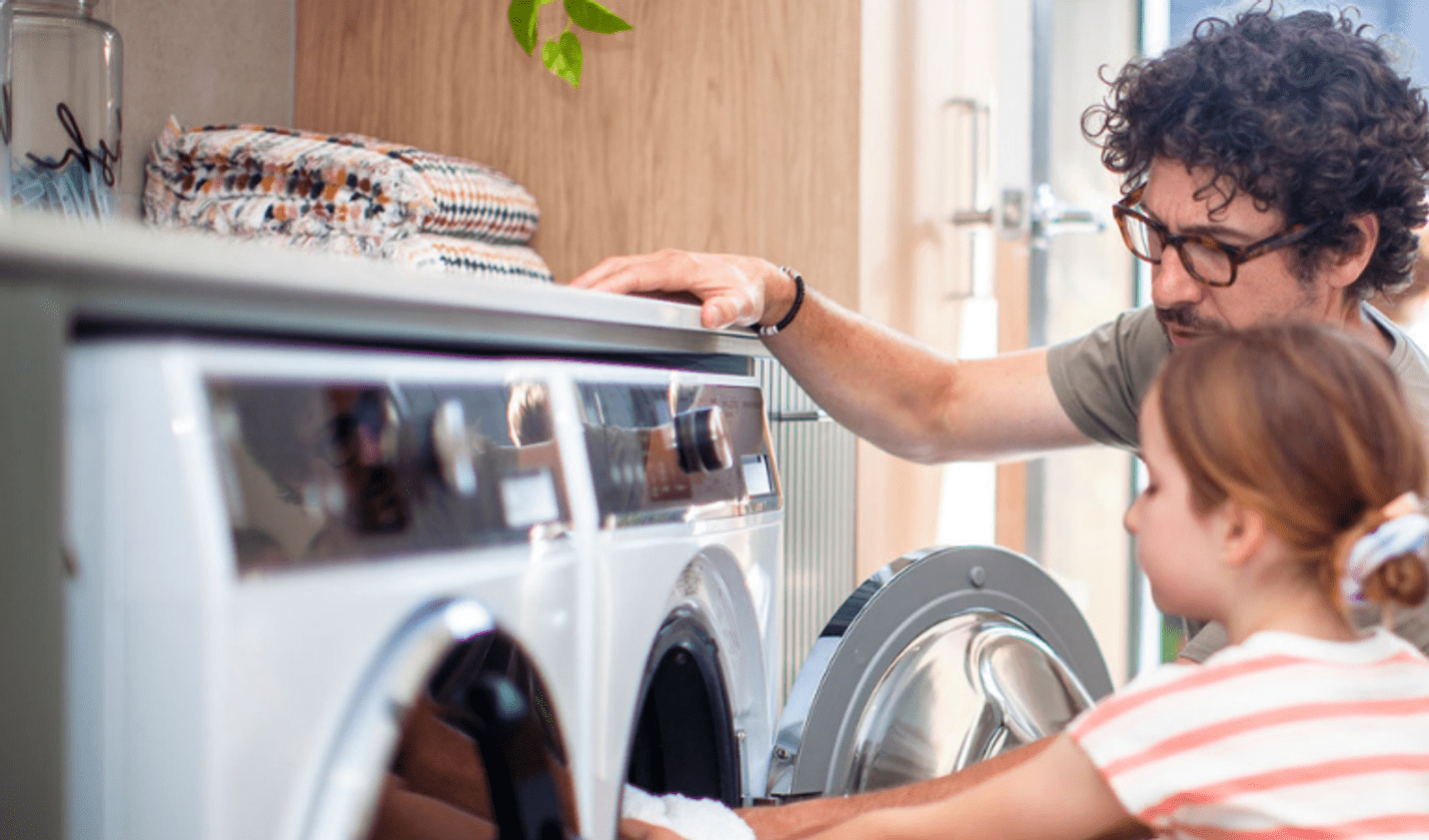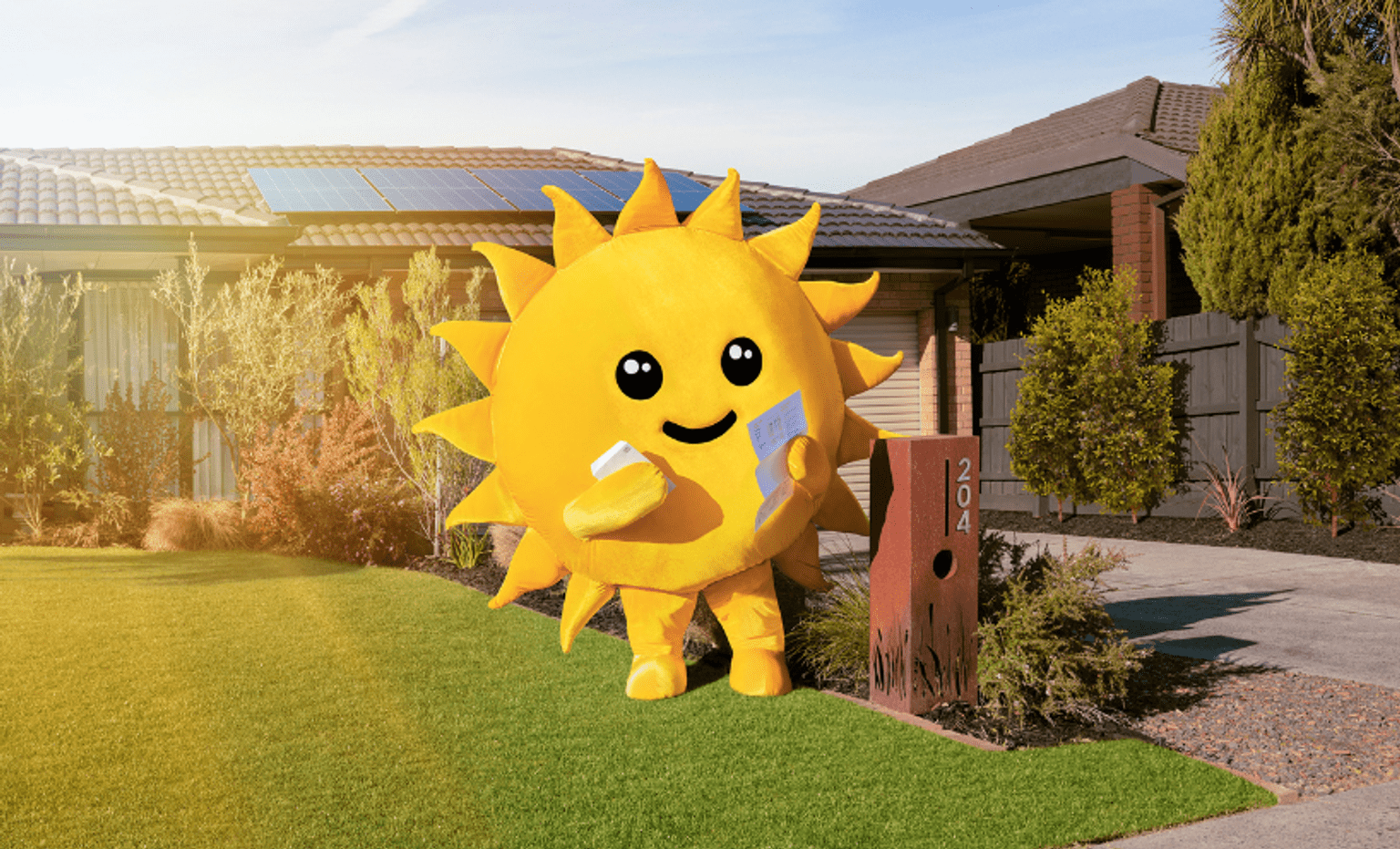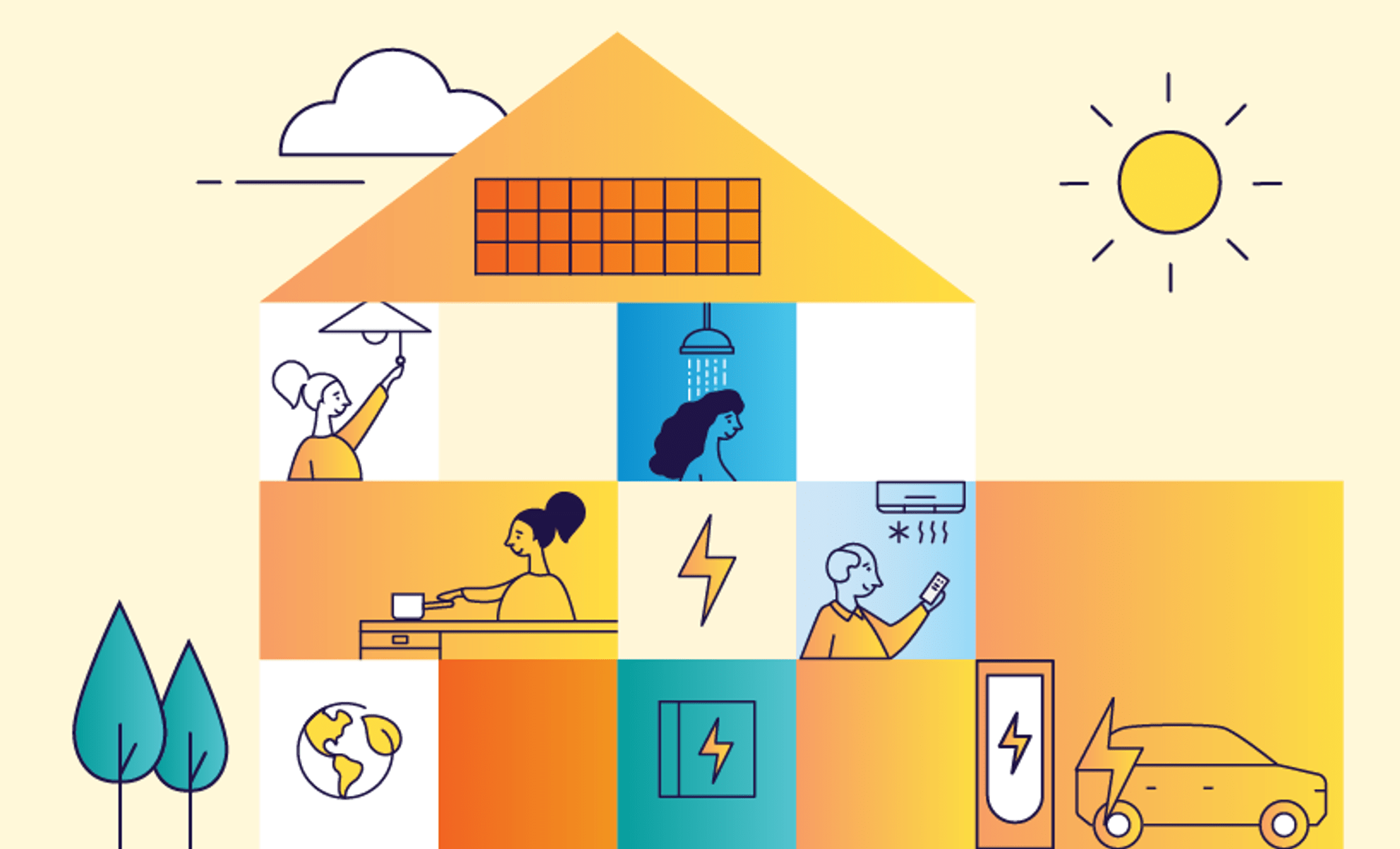Making your home more electric means relying less on gas for heating and cooling, cooking and heating water. No matter where you live, going electric can help you save on your energy bills and make a positive impact by bringing down your carbon footprint.
Start with solar
The best way to start is by using solar panels to power electric appliances in your home. Solar panels are the cheapest, cleanest way to power your home. In recent years it has become easier for households in multi-unit developments to access solar with a range of options available.
You can learn more about them in the following links:
Get more from your solar system
After installing solar think about replacing appliances that use the most gas, first. In most houses, this is heating – and then hot water systems and cooktops.
With the development of smart appliances, it’s now possible to schedule wash cycles to start automatically if you're not home during the day.
On the Victorian Energy Upgrades website you can find discounts on reverse cycle air conditioners, induction cooktops and other energy saving appliances. They also offer discounts on household upgrades such as window glazing to help you save more.
You should also consider products with real time usage data. Many energy retailers have apps that let you track your usage. You can also use an app to connect to your smart meter which will help you understand your energy use and costs.
This helps you plan the best time to use your products to get the best rates. For example, between 10am and 5pm electricity rates are usually low so appliances such as dishwashers and washing machines can be programmed to run at this time. Real time data usage also helps you decide which products you should upgrade first, for example if your fridge is using the most power it could be the first one you decide to upgrade.
More information on how to get the most out of your solar system can be found in the following links:
Upgrade your hot water system
It might be possible to upgrade your hot water system. Choosing the right energy-efficient hot water system depends on your hot water consumption, how many people are in your home, and whether you have the space to accommodate one. For some systems, such as heat pumps, each lot is required to install their own system. You should talk to your Owners Corporation what options you have for your home.
Heat pump hot water systems are great for households that have limited roof space. They use less electricity than other hot water systems to heat cold water as it passes through them, meaning lower power bills and no more waiting for hot water.
More information on energy efficient hot water systems can be found here:
What about a solar battery?
A solar battery will give you more control by storing the energy generated during the day for you to use at night.
Some solar sharing systems can accommodate batteries for individual households, however there may be limitations on the products that can be installed. There are also restrictions on where batteries can be installed. Load bearing and the impact on common areas must be considered.
Solar batteries can vary in size too, so if you are living in an apartment, unit or townhouse this is something to also consider.
Choosing the right battery size for your needs will depend on the size of your solar system, how much energy you typically consume overnight and whether you want backup during a power outage.
The best way to choose the right battery for your needs and budget is to get an independent assessment from an energy expert, authorised retailer or accredited installer.
You can find more information about solar batteries in the following links:
Updated




